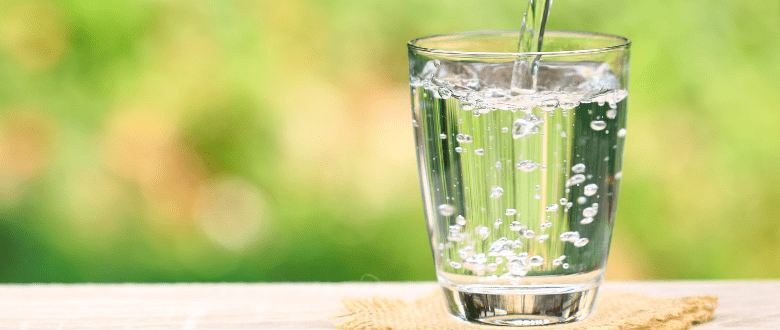Bladder & Bowel UK’s Children’s Specialist Nurse, Davina Richardson, talks about the importance of diet on constipation in children.
What we eat can affect our health. Diet is particularly important in the early years of life because childhood is the time of rapid growth and development and lots of activity. It is also a time when behaviours and habits are learnt that may continue to have an influence into adulthood.
Constipation and diagnosis
What we eat affects our bowels as well as the rest of our body. Constipation is known to affect about 10% of children and if not treated quickly can last for weeks, months or even longer. Although it is most likely to start when children are toddlers, it is known that it can occur in babies, particularly around the time of weaning and in older children as well. Constipation is not always easy to diagnose in children as there are different symptoms which are not always recognised. Not all children who are constipated pass hard or infrequent poos, which are the things that most families associate with this problem.
Constipation can cause abdominal pain, soiling (where poo leaks into the child’s clothing), poor appetite, poor behaviour, low mood. It can affect school attendance and how well children do with their education. It impacts on the whole family, particularly if there is soiling.
Constipation and poor diet
The belief that constipation is associated with poor diet, particularly a lack of fibre and of not drinking enough water-based drinks is still common. However, research evidence suggests that this may not be the case for most children. While it remains true that healthcare professionals are often unable to find the underlying cause of constipation for many children who have the condition, some studies suggest that constipation may have a genetic element or other causes rather than low fibre intake.
The National Institute for Health and Care Excellence (NICE) produced guidance on constipation in children in 2010. This advice and the research evidence underpinning it has been reviewed several times since, but remains: ‘Do not use dietary interventions alone as first-line treatment’ for constipation in children. This is because NICE found that there was no evidence to suggest that giving children more fibre to eat would, on its own, improve the constipation.
So, what should the advice be for children with constipation and for their families? Treating constipation in children according to NICE guidance involves use of laxatives as the initial intervention. Usually macrogols are tried first: Cosmocol, Laxido and Movicol are all macrogols that may be prescribed for children. Once the child’s constipation is improving lifestyle advice should also be given. This involves providing information about food, drinks and regular toilet visits to try and poo, usually at least once a day after meals.
Constipation and fluids
Children with constipation should be encouraged to drink the right amount of water-based drinks each day, for their age, size and activity levels. Water is needed by the body and if insufficient is drunk each day, the body will try to retain water where it can. That includes reabsorbing more from the poo, creating drier, harder poos that may contribute to constipation. However, there is no evidence that increasing fluid intake alone will treat constipation in children.
The correct amount of water for children is about 600mls for children aged 7–12 months, 900mls for 1–3 year olds, 1200mls for 4–8 year olds, 1600mls for girls aged 9– 3 years old, 1800mls for boys aged 9–13 years old, 1800mls for girls aged 14–18 years old and 2600mls for boys aged 14–18 years old. If children are very active, overweight or in hot environments they will need more than this.
It is suggested that children with constipation have the same fibre intake as is recommended for their peers. For children aged 2 to 5 year-old this is about 15g of fibre a day; for 5 to 11 year-olds it is about 20g and for 11 to 16 year-olds it is about 25g. Children should get much of their fibre from fruit and vegetables high-fibre bread, baked beans and wholegrain breakfast cereals. Children should not be given unprocessed bran, as this can cause bloating and wind and reduce the absorption of some nutrients in their food.
Rarely constipation in children may be associated with a food intolerance or allergy. The most common of these include an intolerance to dairy products or to gluten. Gluten is a protein found in wheat, barley and rye. However, children should not have dairy products or gluten-containing foods removed from their diet without the advice of a healthcare professional.

More information on constipation in children
If you are concerned that your child may be constipated or have a problem such as an allergy or intolerance to a particular food, do speak to their healthcare professional (GP, school nurse or health visitor) for advice, as constipation can happen in children who already have healthy eating and drinking habits and adjusting diet and fluids alone is unlikely to make the problem better.
There is more information about constipation and its management for children, and on other bladder and bowel conditions experienced in childhood, on the Bladder & Bowel UK website at https://www.bbuk.org.uk/children-young-people/children-resources/.
There is a table with more information about how much fibre is in different foods in the leaflet Understanding Childhood Constipation at https://www.bbuk.org.uk/wp-content/uploads/2020/12/Understanding-Childhood-Constipation-1.pdf
Bladder & Bowel UK publish a quarterly e-newsletter, which is full of interesting articles, suggestions and information for people affected by bladder and bowel conditions. To receive the newsletter please send an email to bbuk@disabledliving.co.uk, You can find out more on our newsletters page.
To contact our confidential helpline, fill in our confidential helpline enquiries form.
For more information about bladder conditions in children visit: https://www.bbuk.org.uk/bladder-resources/.



Comments are closed